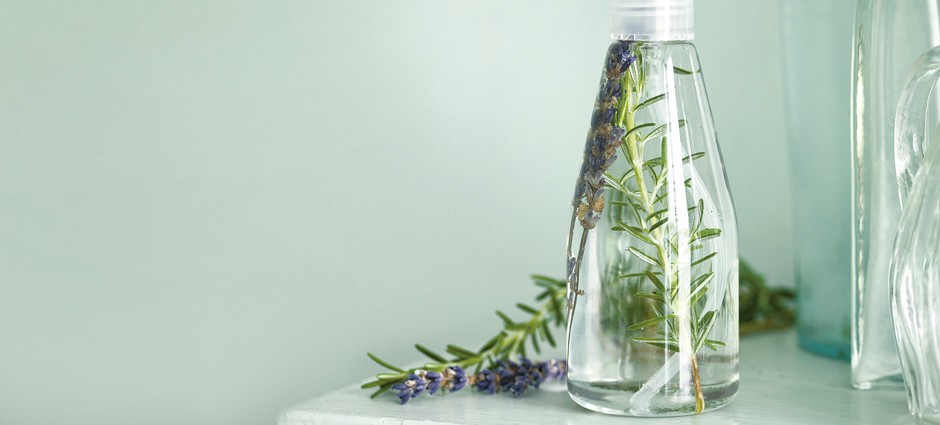Rebecca Sullivan, author of The Art of Natural Cleaning (Kyle, 2018), is on a mission to live more healthfully and naturally, like her grandmother did. “All of my interests in doing and writing about things that are better for our health and the environment stem from how my grandmother and her generation lived: simply. I call them ‘granny skills,’” says Sullivan.
When it comes to housecleaning, in particular the kitchen, Sullivan is all about doing things without chemical-laden products. “My nan cleaned with vinegar and lemon,” she says, adding that if you care about putting healthy food in your body, it’s only natural you would care about what you use to clean your house.
In the spirit of spring cleaning, Sullivan shares the following “‘granny skills’” for freshening up these troublesome parts of your kitchen.
Wooden Chopping Boards
“These can harbor an immense amount of bacteria,” says Sullivan. To clean, use salt, lemon and sunshine. “Once a week, sprinkle with coarse salt, squeeze on some lemon juice, and rub with a scouring pad. Rinse with hot water, and leave outside in the sunshine, which gives a cleaning and bleaching boost.”
Oven & Stubborn Pots/Pans
To clean oven or pot/pan grime, sprinkle with baking soda, and then coarse salt, followed by several squirts of white vinegar. Let it sit overnight, and then wipe with a soft sponge or cloth. “The salt is an exfoliate and will act as a scouring pad,” Sullivan says.
DIY Citrus Cleaner
Not fond of vinegar smell? Make your own all-around cleaner with orange peels and alcohol (such as grain alcohol or vodka). Fill a jar close to full with alcohol, and top off with citrus peels. “Orange is best, but you can also add lemon peels,” says Sullivan. Let it sit for at least one month, and then strain into a spray bottle. “I use this cleaner for any surface: all of my kitchen counters and benches, the sink, also the bathroom.” If you don’t mind vinegar, this recipe works with vinegar and citrus peels, too. “I also like to add antibacterial essential oils such as tea tree, eucalyptus or lavender,” says Sullivan.
Smelly Fridge
Use leftover coffee grounds. “Coffee grounds are an amazing odor absorbent,” says Sullivan. Simply put some in a dish, uncovered, and stick on a shelf in the back of your fridge. Change out every week or so. “The grounds are great for smelly rooms, too,” she adds.
Pantry Moths
“I hate using mothballs,” says Sullivan. To prevent pantry moths from infesting your dried foodstuffs, try Sullivan’s easy recipe. “I take little cotton balls; moisten them with a few drops each of basil, lavender and peppermint essential oils; and then put them in my pantry and utensil drawer.”
Sullivan recommends always having a spray bottle of white vinegar handy for cleaning.
See Sullivan’s homemade antibacterial wipes recipe.

